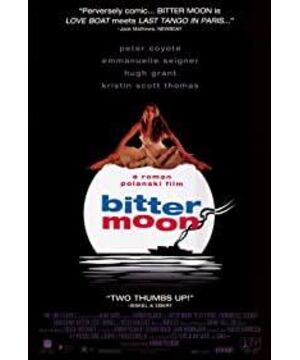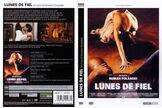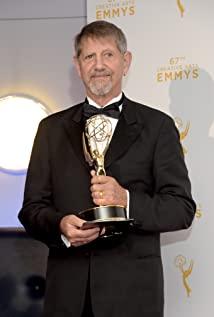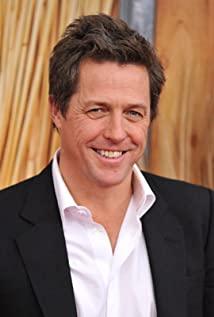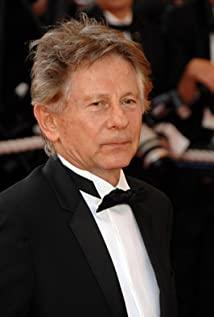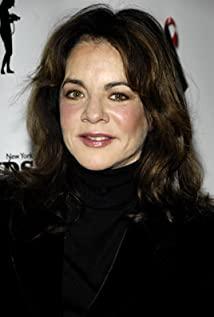(This article is excerpted from the first chapter of "Cult Pornography")
I have given my understanding and personal experience of Viet Dimension in the preface. The reason why I avoid using the word "definition" is to minimize the violence brought about by defining this behavior and relying on this violence as much as possible. hegemony at work. Lacan's theory of the chain of signifiers has pointed us to the state of words, and any dissatisfaction with this state and the processing that follows it is artificial and thus tainted with inequality. Words make up sentences, sentences make up paragraphs, and different paragraphs make up an article; an author-organized text is the author's permutations of words he or she brings into a plane, a unidirectional arrangement of combinations. The reader obtains the text, and the author also obtains a certain sense of benefit from the text, so it can be said that the author sells a certain text to the reader. In fact, the author does not sell words to the reader, the author only sells the organizational form of the word to the reader, or to put it more bluntly, the author just shows the reader a possibility, but the author has to "charge" for it. The form of organization that the author sells to the reader is what we call narrative. What readers gain from this activity is just a narrative and nothing else. Since traditional novels use stories as the main selling point, readers do not clearly feel a certain author's power when buying traditional novels, and readers are even willing to submit to this power, which brings readers a certain " "Good" reading experience: It seems that the more seamless the author makes the story (and the more it conceals the possibility that a story could be retold), the more satisfied the reader will be, and will give the book a favorable rating. The corresponding situation has already raised widespread suspicion in knowledge. Derrida's deconstruction was an important turning point in this skeptical movement. Because of the organization of a closed word, the knowledge referred to by these words has a hegemony. I'm not saying that some kind of mediation makes this original "knowledge" accessible to hegemony, but that knowledge itself is an integral part of hegemony. Once this knowledge is divorced from a set of anchored, artificially designed language games, there is no way to express it. It is for this reason that Derrida constantly emphasizes a strategy in his writings. I have already mentioned in the introduction a fictional character of our knowledge, and I seem to have mentioned that fiction and transdimensionality are the same thing, and that the word fiction is also a strategic expression of my choice. . It's just that I'm here to take the next step along Derrida's line: the reader can already see that I've also inherited Derrida's "knowledge" here - yet one question remains open: Derrida's deconstructed method, can we call it a kind of knowledge? Furthermore, as I am sure the reader has noticed, I have here many times spoken directly to my "reader", that I am imagining a reader while constantly asserting my own presence, that I am through a particular word organization To continue my presence: it is as if I had pre-recorded a video and played it to the reader "at the moment" when they read, not at the "now" when I write. A text always seems to have this characteristic, especially academic papers, i.e. those that we normally think of as directly connected to knowledge. In the text, according to the author's fiction, there is always such a mechanism: this mechanism seems to be an assembly line, constantly using the context of the text to reproduce one "author" after another - to ensure that the author of the text is always present. Among them, the author's fiction is actually carried out by confusing life and academics. I do not intend to deal with an author's life and academia in some kind of binary opposition here. I just want to say that life and academia are two different fields of the author's existence. In these two places, the author has different of social identities, using two different language games. If the author confuses these two fields, it means that the two fields will share each other's language games and express themselves through the author's now-union identity, which is actually the meta-narrative happening. effect phenomenon. The fiction that the author can make in this article is the spiritual prayer for the meta-narrative, which is a mysterious ritual. This mystical ritual is being used even by me who is writing now, and this curse-like thing will work in the "now" that you, my readers, read. Unconfused life and academia have a certain clarity that is not closed, they do not have a certain boundary - the boundary is relative to things that exist in the same dimension - their relationship is actually separate Or it is not in one dimension at all. Academic exploration should be a relatively independent exploration in a certain uninherited situation, a kind of detachment and capture within the academic language game, rather than achieving a certain purpose by substituting the knowledge acquired in life. Even if the author-reader hegemony relationship within the novel is not easy for us to discover because of the nature of the novel itself, we still need to point out the existence of this power relationship. I will select a film and television work that can include all the elements I will discuss for analysis, so that readers can have a preliminary understanding of the fiction I am talking about and the identity of over-dimensionality and arrogance . This film and television work was released in 1992 and directed by Roman Polanski.Bitter Moon , I recommend readers to get a general idea of the movie before reading the text below. I chose this film because it shows us the hegemonic isomorphism/identity of porn and literature in a visible way, and the film as a whole also uses a transdimensional approach (though not so much) Obviously) reached a third level of author-reader relationship with the audience of the film. The three levels of relationships that run parallel to each other demonstrate how hegemony unfolds in these three levels of relationships, and ultimately we get the feeling that these three seemingly parallel levels are one and the same thing in themselves . There is such a present-past narrative structure in Polanski's film, where the present and the past play an almost equally important role. In the past, it mainly involved the story of the writer Oscar and his female partner Mimi in the movie, but now it mainly tells about the relationship between Oscar and Mimi and Nigel and Fiona. We can see in the movie that the effective foothold of the whole story is a cruise ship: the foothold of all stories in reality is on the cruise ship. The feud between the four of them can only happen in this ship - this scene - at the moment in the movie. The encounter between Nigel, Fiona and Mimi is purely an accident in the play (but this is actually what the director or screenwriter wants us to see), which has to lead us to think about a story: Is it possible that this is not the case? But when the audience -- in whatever medium -- sits down and starts watching the film, the audience has given full control of the film into the hands of the audience. If a director or screenwriter does not exhaust all the possibilities of a work, then the work can only be a monopoly on language and its organization. In dealing with this problem, we can refer to the film " Lola Run " directed by Tom Tykwer , as well as many science fiction movies with the theme of time loop, such as " Groundhog Day " or " Groundhog Day". Edge of Tomorrow”: These films show us some of the possibilities, although they do not exhaust all possibilities, but at least they provide the audience with a channel - they complete a film by acknowledging the existence of other possibilities, providing the audience with a re-creation (depending on imagination). But for a drama like "Bitter Moon," the whole story is built on an instability: the whole structure is held together by a coincidence—the meeting of Fiona and Mimi. , relying on the cancellation of other possibilities, the suppression of the questioning of the audience. There is only one possibility that the story has enough reason to be presented to the audience by the director and screenwriter, otherwise it will not have any appeal to the audience. In this story, the author also seems to have no intention of covering up this instability, but instead makes an artistic play based on this instability: the background of the whole story is set on a cruise ship sailing on the sea. Also, all the relationships and structures involved in the whole story are fraught with instability, which we find in Nigel and Fiona's relationship, Oscar and Mimi's relationship, but which is referred to by The violence is presented with varying degrees of visibility. Instability is so typical in this work that the author begins to use instability as the material for creation, and this material is not introduced from the outside, but embedded in the whole work, instability. Always controlled by the author to achieve a certain artistic effect, this is actually a clever fiction of the author in this work: an act of concealment. In "Bitter Moon", the relationship between the two couples has been infiltrating each other since they met, but there is always oppression: in the third relationship formed by these two relationships, there is still the advantage of one over the other. And this third relationship has two aspects, namely, the author-reader relationship composed of Oscar and Nigel, and the temporary sexual relationship composed of Mimi and Fiona. The fourth relationship will consist of many past-present-future structures. If we try to represent the instability in the entire Bitter Moon in a schema, we get the following example:
Looking through the whole film, we can observe a whole closed structure in "Bitter Moon". We can see that at the beginning of the movie (introduction to the cast and crew) the background is a view of the ocean in the porthole of the ship in the process of zooming, and the movie also ends with a view of the boat outside, especially on the ocean . In the coincidence on which the whole story is based, Fiona first met Mimi in the bathroom, and worked with Nigel to aid Mimi. The climax and end of the film also depict Fiona and Mimi's temporary sexual relationship, and we can see that Mimi's presence saved Nigel and Fiona's marital relationship: Nigel and Fiona are embracing on the boat towards the end of the film , it seems that each other has become the only remaining support for each other. Instability is implied by the development of many relationships throughout the film, the state of the entire cruise ship is a metaphor for the development of instability, and the sea serves as the foundation of the cruise ship's navigation, and its occurrence due to the weather. Variation affects the sailing state of the cruise ship: the whole is an illustration of instability as an element of artistic creation. Readers who have seen this film should have some memories of the state of the ship when the film reached its final climax. The overall chaos and disorder peaked at a New Year's masquerade on a cruise ship. At this time, the entire cruise ship is also sailing on rough seas: the weather is extremely bad, and the rain is pouring. The author is showing his presence to his audience: it's all by design, using only the usual creative principles. But we know that "Bitter Moon" is the most pornographic film. The reason why the above-mentioned creative principle is perfectly explained is because a truth is revealed in this film: the method of creation and the principle of pornography are the same. The entire climax of the entire film is chaos, and the events that take place during this chaotic moment are: a fight breaks out throughout the cabin, passengers vomit from seasickness; We can even speculate if Oscar has also been telling Fiona his story with Mimi), and that the sexual relationship revealed Nigel's failure; at this moment, Nigel and Fiona would not have witnessed the destruction of Oscar and Mimi later, if not for them later. The marriage is almost broken; Oscar's story has been told and closed at the moment, and the whole story has sufficiently interfered with reality and entangled with the characters in reality (Nigel and Fiona fall in love with Mimi in different ways) ;At the end Oscar finally tells Nigel about Fiona and Mimi having sex, then kills Mimi and finally shoots himself... Chaos and disorder bring shock to the cruise ship, and in the end we see, The crew removed the bodies of Oscar and Mimi from the cabin. As Georges Bataille wrote in " The chaos and disorder created a fright for the cruise ship, and eventually we saw the crew carry the bodies of Oscar and Mimi from the cabin. As Georges Bataille wrote in " The chaos and disorder created a fright for the cruise ship, and eventually we saw the crew carry the bodies of Oscar and Mimi from the cabin. As Georges Bataille wrote in "Porn says:
Notably, disorder occurs "at the peak of the rancidity and smear that death represents", during "the period when sufficient apparent lethal toxicity is fully active and contagious." Disorder "finished only after the perishable parts of the king's body had completely disappeared, leaving only a skeleton that was hard, intact, and incorruptible"... the world of the world is the world of taboos. The divine world is open to limited arrogance. This is the world of festivals, the world of kings and gods.
In the Bitter Moon's New Year's make-up party - in the midst of this chaos and disorder - what is the body of the so-called "King"? What is a "skeleton" again? We can see that Oscar has lost his male sexuality (because of Mimi's actions) in this film, so what is supporting Oscar's pervasive violence? Oscar himself is a victim of the story, and his experience with Mimi is no longer in Oscar's control after it becomes the story. The story tells itself through Oscar, and is imbued with a masculine quality. This masculinity lies in a gaze that is always present. Before I talk about this stare, allow me to point out to my readers a piece of evidence that exists in the Bitter Moon movie itself. At the end of the New Year's masquerade ball, that is, the portrayal and description of the end of the ball in the film. We can see many pictures full of romantic style. We can see Nigel and Oscar present as Fiona leaves side by side with Mimi and walks into the room. Oscar doesn't seem to think that this happened, it can even be said to have expected it, while Nigel is about to go from extreme confusion and shock to uncontrollable anger (this anger can only be run to the deck and into the instability the symbolic scene was rehabilitated). At this point, we can say that chaos and disorder have reached their peak in the movie, and Oscar has become the face of the story, he has signed a soul contract with Satan, the figure named "writer", we learn from his In the smile (ecstasy) you can see that he has become a "writer" contentedly. Oscar is constantly creating himself about the nature of the writer throughout the storytelling process, an existential technique of the self. In the chaos and disorder at the peak of the holiday celebration, Oscar became a writer, and his author-reader relationship with Nigel reached a volatile peak at this moment: it meant a dialectical state in which, The oppression of the author on the reader has reached the most serious level and gradually exceeds the critical value, which also means that the reader is about to rebel against the author. In the writer-reader narrative structure, the writer is the equivalent of a man who forces women to accept his phallus. Polanski is well aware of this structure, and uses it as an element of artistic creation (equivalent to Polanski's acknowledgment of the existence of this element, which not only allows us to see his intentions that he did not intend to hide, but also allows us to show the audience as an audience. we inflict violence). We can see the presence of the erect penis in the movie clips I refer to above - even though we know that Oscar's body is no longer sexually functional as Oscar himself.
In the two movie screenshots I've given, we can see the chaos and disorder, the whole cruise ship has just passed a huge wave, and there are some small incidents in the cabin. At this time, Nigel and Oscar were watching the backs of Fiona and Mimi leaving. We especially need to pay attention to the middle of Oscar's legs: why did the director present such a picture to the audience? —Oscar has a champagne bottle tucked between his legs, like an erect dick; and the bottle of champagne is clearly open: we all know what happens when it's opened. The director is alluding to our erect penis, and a penis that has just finished ejaculating and is still erect. Oscar's excess as a writer has been released, and Oscar, as a writer, has experienced a sense of death in the peak of chaos and disorder - Oscar can no longer identify with the author's identity (this is why he can appreciate Fiona and Fiona at the end. The beauty of Mimi making love, repenting, killing, and committing suicide under Nigel's watch—the "author" would not have allowed anything like that to happen), leaving Oscar with only the reader's revolt and mortal fate. Below I need to explain one by one the many relations I mentioned above, in which the reader will find the identity of these relations. The first thing I want to explain to the reader is the writer-reader relationship that the film focuses on on the current cruise ship. After meeting Mimi, Nigel never seemed to be able to forget this woman, and later met Mimi again in the ballroom of the cruise ship. We can see that Nigel is already in a state of contradiction: a marriage that seems to be dying and a mysterious beauty from France. But Nigel's conversation with Mimi didn't seem to have any substantial effect, but instead led Nigel to Oscar. Oscar appears to have a chance encounter with Nigel on the deck, but viewers should be able to guess that this is Oscar's design, and that the intermediary is Mimi, because in a clip in the middle of the film, Oscar mentions that he has a sexual relationship that regulates Mimi. The power to develop direction. Oscar runs into Nigel and asks Nigel for help, but ends up telling Nigel his story with Mimi. At the beginning of the whole process, Nigel seems to have no resistance, because resistance is no longer established at this point, he has developed a relationship with the person who is telling him the story, a relationship that is oppressive, but for the reader has some kind of attraction. This relationship leaves readers with Stockholm Syndrome. Can we say that Nigel ended up listening to Oscar's story because he wanted a chance to have sex with Mimi? We might as well believe that Nigel has indulged in this story, which has become unified with Mimi: throughout the film, it is the story that exercises hegemony—a man-made system that is out of human control, a system that needs to manipulate people to speak of its own system, an alienated presence—itself, not anyone. If we want to understand how the story achieved this status, we have to take a look at Oscar early in the film. What we can learn from the film is that Oscar aspires to be a "writer", the reader needs to take note, I'm not saying that Oscar wants to be a "writer" but wants to be a "writer" ( author). We must first understand the difference between a writer and a writer. Let us analyze the English definitions of these two terms. Did igel end up listening to Oscar's story because he wanted a chance to have sex with Mimi? We might as well believe that Nigel has indulged in this story, which has become unified with Mimi: throughout the film, it is the story that exercises hegemony—a man-made system that is out of human control, a system that needs to manipulate people to speak of its own system, an alienated presence—itself, not anyone. If we want to understand how the story achieved this status, we have to take a look at Oscar early in the film. What we can learn from the film is that Oscar aspires to be a "writer", the reader needs to take note, I'm not saying that Oscar wants to be a "writer" but wants to be a "writer" ( author). We must first understand the difference between a writer and a writer. Let us analyze the English definitions of these two terms. Did igel end up listening to Oscar's story because he wanted a chance to have sex with Mimi? We might as well believe that Nigel has indulged in this story, which has become unified with Mimi: throughout the film, it is the story that exercises hegemony—a man-made system that is out of human control, a system that needs to manipulate people to speak of its own system, an alienated presence—itself, not anyone. If we want to understand how the story achieved this status, we have to take a look at Oscar early in the film. What we can learn from the film is that Oscar aspires to be a "writer", the reader needs to take note, I'm not saying here that Oscar wants to be a "writer" but wants to be a "writer" ( author). We must first understand the difference between a writer and a writer. Let us analyze the English definitions of these two terms.
The author author comes from Old French and entered the category of Old English around the 12th century. At first, it only means "initiator", and its root is "auct", which can be translated as "creation, increase". The object referred to by author is therefore Has the connotation of someone who "created" something. Writer writer does not have this meaning. In addition, and more importantly, the author author can be used to refer to the novelist (novelist) exclusively, the writer does not have this separate reference, it can refer to the "writer" in all senses. And the most important difference is that when we call a person an "author," we're actually referring to a book written by that person, we're bringing that book into the context of the discussion, and This creates a power relationship. The presence of the book confers a perfect power: when author is used to speak of a person, since the person has published a book (which cannot be revised any more, only minor revisions are possible - banned books are the exception) ), so the author gains a certain degree of authority. And when we call a person a "writer," we're referring more to a profession, that a person is in a certain state, and the word is human. As long as a person is engaged in writing, we can call it a writer. Although he may have published some works in some magazines, as long as the person does not publish books, we will not call it an author. Readers should be able to see that, after the above distinction, we have figured out that the important difference between author and writer is that author is an image, an image that can only be achieved through self-technology. The writer only emphasizes a state of man. The former needs a person who wants to be an author to cater to, while the latter only needs people to write, then the writer will naturally become a paired communication symbol. The former comes from the meta-narrative, which renames a person and incorporates it into the historical narrative, while the latter can be used alone for a person, and the effective range is also large and small. A person can be an author and a writer at the same time. When we read a person's book or when the person attends some important literary event or ceremony (such as the Nobel Prize in Literature award ceremony) or gives lectures in any sense, then this People appear in front of us as authors. And when he is in the state of writing, the person is the writer as long as the text has not been completed, and the person is the writer when he completes his text—that is, invents a completion for a text—the person will be in a transitional state. As long as the text is seen by other people, that person becomes an author (although we are still used to calling it a writer when a person has only published a few works). Author is an image, an image that continuously accumulates elements in the course of history. Oscar wanted to be a writer, and that's why he came to the city of Paris. This behavior provides us with an important information, that is, we can know in Oscar's mind, according to the knowledge he can understand, what side the writer, the big Other, appears in his mind. Oscar mentioned the place of Paris in his heart: Paris seems to be a city of literature, largely because many writers lived in Paris when they were young, and perhaps because Paris provides a lot of creative material for these writers and inspiration. The two important writers who appear in the film are Hemingway (1899-1961) and Henry Miller (1891-1980), the former who wrote his famous essay on Paris "The Feast of Flowing, who wrote the important novel Tropic of Cancer"", the latter wrote the important novel "The Tropic of Cancer". Oscar came to Paris, France, not because he could find some kind of "literary feeling" here or be closer to "historical writers", but because he could shape his own image, which is equivalent to following a technique to make his resume closer to a "writer". The accumulation and landscaping of the writer's image stems from a huge historical fiction. Those famous writers in history provided later generations not only some famous literary works and some so-called "standards" for evaluating literature, but these writers mixed their own life experiences into their works and finally played a role. Enrich the effect of the image of "writer" and leave behind many paradigms about writers and works. Some people even sort out what a writer should be: what character traits should they have? What life experiences should they have? What is their family like? These questions plagued would-be "writers" later. The importance of the "writer" as an image is constantly being sold and becomes a means of sale in a capitalist environment, and the importance of this image becomes even more important. Those who want to be "writers" whose task is now more than "writing without a name", their task is much more than that. Hemingway's "Feast of the Flow" and Henry Miller's "The Tropic of Cancer" describe two completely different Parisian life. The former is a relatively normalized, professional life, while the latter is almost close to the life that Beat writers described in their writings. This gives people the impression that writers should live such a bohemian and different life from ordinary people. In such a life world, the writer seems to be a character that needs to be performed every moment. Henry Miller spends his time in Paris in the later stage of Oscar in the movie, interacting with various women, his real purpose is to convince himself more, as if he is a down-to-earth, unhappy but free-spirited "writer ". In the information age, the "promise" of capitalism has largely been cancelled, and this self-comfort has intensified. Not only that, the writing mode and method can also become an evaluation index. Beat writers can not write without a speed, sex and drugs, so many later writers have imitated. Rimbaud, as a "genius poet", is also an example, the movie " Total Eclipse of the Heart "seems to show us a perfect example of genius. This phenomenon also occurs in scholars. Similar to what I mentioned at the beginning, it is possible that the hegemony revealed by this phenomenon can still be covered many times in the field of literature, and in the field of academics, this hegemony has caused widespread suspicion. Not only thinkers with legendary experiences such as Spinoza, Wittgenstein, Nietzsche, and Stigler are at risk of being experienced and consumed, but pure scholar thinkers such as Kant are also suspected of being promoted as idols. Susan Sontag makes a similar point in her " Styles of the Radical Will (full hardcover) ". Oscar is living that life, but when he was young he mistook the experience of being a "writer" for being a writer himself. Oscar somehow understood this truth later, perhaps after Mimi was portrayed in the movie sleeping with a black male dancer in front of Oscar, he realized that becoming a real "writer" requires selling yourself, really finding readers and Telling a story is what builds up the author-reader structure—a power relationship. Mimi became Oscar's tool to become a writer but didn't know it. Oscar was controlled by Mimi on the surface, but in fact Oscar really held Mimi's power over sex. Mimi did not have self-awareness. worn out. Mimi's return and ostensible vengeance are in fact just a product of being dominated by "writers" and "story" - Mimi's return is to help "writers" come to fruition. And when Oscar understands this, he has to find readers. This process is tantamount to hunting or kidnapping. We often see that some criminals kidnap their victims not because of greed and lust, but because of a passive receptors. Oscar has also lost his self-consciousness at this time. Oscar is completely captured and occupied by the historical fiction/meta-narrative about the "writer". The next step for Oscar is to truly become a "writer" in such a state of walking dead. At this time, the power relationship has changed, and the original Oscar-writer power relationship has expired, because in the end, the "writer" wins, and now it is the "author-reader" relationship that needs to be established, and Nigel becomes Oscar's prey.
Nigel is actually more fortunate, however, and due to certain qualities of his own (in the film, Nigel is a more decent British financial industry worker), ends up witnessing the self-deconstruction of this relationship in the midst of a precarious power relationship. , or even disintegration. Nigel has a strong sense of self, or maybe it's because Nigel isn't interested in affairs, he's only interested in Mimi on a whim. When Nigel listened to Oscar's story early on, he had more than once questioned why Oscar needed to tell him the details of his love affair with Mimi. This part corresponds to the love between Oscar and Mimi who did not contact SM in Oscar's story. period. The author-reader power relationship we can find here is actually one of the most obvious in the entire film, with Oscar, who is becoming a writer, detailing his story as if writing a novel. We see that there are many autobiographical elements in this novel. Oscar has substituted his own life experience into the novel, relying on many details to describe him and Mimi to complete this novel whose reader is Nigel. Oscar believes this is a constant pressure on the reader, as he is described as a "writer". His pattern of life and destiny is entirely "writer". Oscar relies on depicting such a heroic tragedy to obtain the thrill of being a writer. And even if the story Oscar tells is completely made up, the story still has an oppressive effect on the reader. Throughout the story/novel, Oscar seems to be telling Nigel about some kind of libido excretion, and the tragedy that comes with that libido. The story is filled with scenes of violence and pornography, and ends up depicting scenes that are almost unacceptable to a decent man like Nigel: like Mimi having sex with a black male dancer I already mentioned - we find , whether it is Mimi's humiliating method for Oscar or Oscar's violent narration around libido, they all bring us to a perspective of concern for the phallus: Oscar's lower body is paralyzed, and it seems that he has no male sexual function, so Mimi relies on making herself passive to gain subjectivity over Oscar—a right to humiliation. Mimi becomes a tool, and it's part of Oscar's tragic narrative—a means by which Oscar believes Nigel can solidify his improvisations with Mimi and ultimately exercise his hegemony as a writer. And about this final exercise, I have already described in the paragraph on "chaos and disorder" earlier. What we finally see is that, after Oscar's final violence, the "author" image as a meta-narrative can no longer enable him to continue to identify, because that image has left him and was "sprayed into the self by him". Outside", there was nothing left for Oscar at this point. Oscar realizes that he and Mimi are tools, and finally chooses to kill himself and Mimi by suicide instead of hatred. Oscar confessed before his death that they were just too greedy, which was actually Oscar's familiarity with his own alienation from Mimi. For Nigel, what he is witnessing is the whole process of self-deconstruction of the author-reader power relationship. If Oscar wants to be an author, he must need Nigel's listening. If Nigel doesn't show a violent reaction, then Oscar's behavior can't succeed, he can't become an "author". In the relationship between Oscar and Nigel, Nigel is always in an ambiguous state: he seems to be resisting Oscar's oppression all the time, resisting this layer of unstable relationship, but because of his desire to get Mimi, he keeps telling the story Listen. But when Fiona comes on, whether Oscar tells her the story or not, the whole story is actually being controlled by Nigel. The author-reader structure will eventually lead to deconstruction, a power relationship that is shaped by the hegemony that exists within it. Can't run. That is, at the moment when the relationship reaches its climax, the relationship falls apart. The instrumentalization of Oscar means that he is never a pure "author", no one can be a pure "author", there is always a historical imprint/primitive trace in Oscar - this is because he is delusional about inheriting a literary tradition , just as some scholars want to inherit the whole body of knowledge, he plays the role of the reader in the Oscar-writer relationship. Regarding the dialogue between the story and Nigel through Oscar, the information was mediated, but the reader-author relationship was still formed, but here is the opposite of what we imagined: some kind of coincidence led to this two-way choice itself is not good for the story— —Because Nigel himself is a submissive, more conventional person, he is not attracted to the story, but only to the tool (Mimi) of the story. When Nigel finally failed to get Mimi and felt that his rights were damaged instead (Fiona had sex with Mimi), his resistance reached its peak, and this resistance, as an external criticism, had no focus, but Nigel's Defiance achieves a certain harmony with the self-deconstruction of Oscar and Nigel's author-reader power relationship (the "writer's" exodus) - they are parallel and simultaneous, so it feels (not just for Nigel) With Fiona, and for the audience) Nigel and the Fiona couple have gone through a revolution: as a result of this revolution, their relationship as husband and wife will be stronger. This is a great irony for the entire "writer" meta-narrative, but it also proves the self-deconstruction of the whole film of "Bitter Moon". At the same time, there is of course a political science to the film as a pornographic film. This film and the original novel have another kind of "over-dimension", their tentacles extend out of the two-dimensional plane, directly reaching the audience/reader's life, and by doing so, they will be subjected to a kind of violence. This kind of violence is actually produced between a text and its readers, and it is not displayed, but directly imposed. This kind of violence is also a topic that we will discuss later, and since this is just a preliminary demonstration to my readers using "Bitter Moon" as an example, I will not expand on this topic too much here. I just ask my readers to think about one question: Do I, who am writing in my "now", also rely on the presence of myself constantly encoding myself in the text to impose some kind of What about hegemony? If my readers have thought about this, then you will have some anticipation for the topics I discuss in Chapters 2 and 3. In the rest of the first chapter, I will give more examples trying to demonstrate the isomorphism of the author-reader relationship and violence-related sexuality (such as SM, etc.). We shall see that the sign that points to these two fields is the phallus. But now allow me to go back to "The Bitter Moon" to wrap up this section (note: I'm making up the perfect tense). The whole film of "Bitter Moon" tries to achieve a closed loop of narrative with the arrangement of calm ocean, Indians-raging oceans, stories-calm oceans, Indians, but its theme has been fragmented - perhaps that is also Roman Polanski's brilliance: What Bitter Moon wants to express is just beyond Bitter Moon.
View more about Bitter Moon reviews


